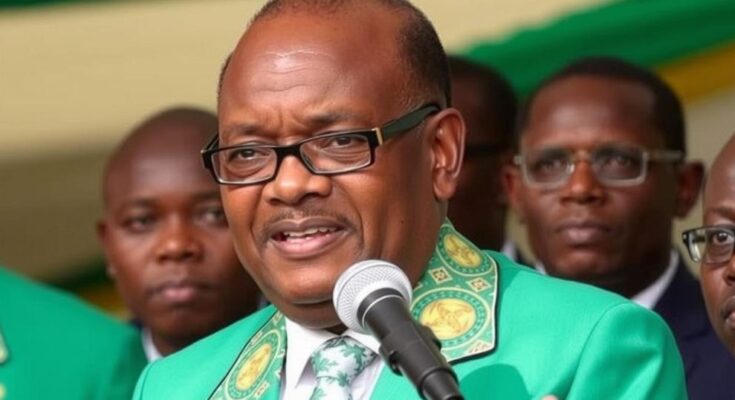Vice President Mahamudu Bawumia of the NPP conceded defeat in Ghana’s presidential election, ending two terms of NPP governance. John Mahama of the NDC emerged victorious, garnering 56.3% of the votes as voters expressed frustration over economic issues. Despite improving inflation rates, economic struggles were pivotal in the election, leading to a demand for change and a call for renewed leadership.
In a significant political shift, Vice President Mahamudu Bawumia, the candidate for Ghana’s ruling New Patriotic Party (NPP), conceded defeat in the recent presidential election. This election marks the end of the NPP’s two-term governance under President Nana Akufo-Addo, during a period characterized by severe economic hardship, including high inflation and debt defaults. In addressing the media, Bawumia acknowledged the people’s desire for change and congratulated his rival, former president John Mahama of the National Democratic Congress (NDC), on his victory. Mahama’s supporters celebrated outside their party headquarters following the announcement of the results, which indicate he secured approximately 56.3% of the vote. The economic challenges faced during the previous administration have been a central issue in this election, prompting many voters to seek an alternative leadership approach. Despite some improvements in inflation rates, the overall economic discontent was palpable, paving the way for Mahama’s return as a formidable candidate after previous election losses.
Ghana has a history of political stability and alternating governance between its two main political parties since the re-establishment of multiparty democracy in 1992. The recent election unfolded against the backdrop of Ghana’s economic struggles, highlighted by a significant default on debt and currency devaluation, requiring a $3 billion bailout from the International Monetary Fund. Past elections have seen the NPP and NDC trade power, but the recent hardships faced during the NPP’s administration affected voter sentiment significantly. After a decline in the economy, many looked towards the NDC and its candidate, John Mahama, who previously served as president from 2012 to 2017, for a renewed approach to governance.
The concession by Vice President Mahamudu Bawumia signifies a pivotal moment in Ghana’s political landscape, reflecting the electorate’s dissatisfaction with the economic conditions under the NPP. As the NDC prepares to return to power under John Mahama’s leadership, the country anticipates addressing the pressing economic issues that have shaped recent electoral outcomes. This election underscores the dynamic nature of political power in Ghana, where citizens are increasingly inclined to demand responsive governance amidst economic challenges.
Original Source: www.voanews.com




